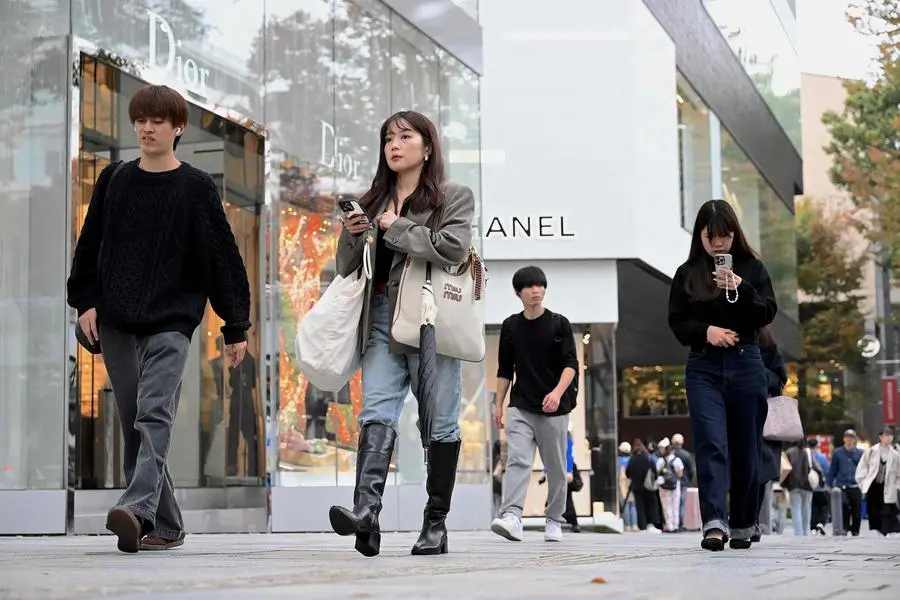PHOTO
Japan's growth slowed to 0.2 percent in the third quarter, preliminary data showed Friday, after a typhoon and government "megaquake" warning weighed on economic activity.
The Cabinet Office's GDP data for July-September met market expectations while marking a slowdown from a revised 0.5 percent in the previous quarter.
Wage hikes and temporary income tax cuts boosted public consumption while spending on cars likely increased as production resumed after some disruption related to a domestic testing scandal, analysts said.
But those positive factors were tempered by the effects of Typhoon Shanshan and the quake alert -- issued after a magnitude 7.1 jolt to ready people for the risk of an even bigger one that ultimately did not occur.
"Personal consumption is believed to have been dented by natural disasters" in the third quarter, BNP Paribas chief economist Ryutaro Kono said before the data release.
Production at Japanese factories was also hit when Shanshan descended in late August, cancelling trains and flights as one of the fiercest typhoons to hit the country in decades.
Earlier the same month, "tourism demand was weighed down" by the week-long "megaquake" alert issued by the weather agency for the first time under a new warning system.
Authorities urged people to avoid panic-buying during the advisory, which cautioned that a huge quake was more likely.
"The economy lost momentum in the third quarter and we think that GDP growth will remain around trend over the coming quarters," Marcel Thieliant, head of Asia-Pacific at Capital Economics, said in a note on Friday.
However, the Bank of Japan "will be encouraged by the strength in consumer spending and we still expect it to press ahead with another rate hike at its meeting next month", he predicted.
The country's sputtering economy is just one challenge facing new Prime Minister Shigeru Ishiba.
The 67-year-old kept his job in a parliamentary vote on Monday, despite last month leading the ruling coalition to its worst general election result in 15 years.
"A key to kick-starting Japan's stagnant economy doesn't just lie in big cities," Ishiba told reporters Monday.
"The long-ignored potential of Japan's rural areas and their local industries, from agriculture to fishery and manufacturing to hospitality, can be a catalyst."
Ishiba reportedly plans to announce a new economic stimulus package including cash handouts for low-income households and child-rearing families.
He has also unveiled new plans for the government to support the AI and semiconductor sectors with over 10 trillion yen by 2030.





















